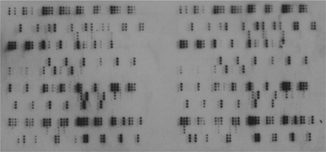Focus Biomolecules produces a broad range of bioactive lipid mediators as well as many small molecule inhibitors of numerous lipid metabolic pathways for use as cellular probes. These can be supplied as individual products or in a library format (Focus Biomolecules products are available through tebu-bio in Europe). Pathways include Anandamide, Lipo-amino acid, Prostaglandin, Leukotriene, Sphingolipid, Fatty Acid, Cholesterol and more.
Synaptamide – an Anandamide-like Neuronal Lipid Mediator Stimulating Synaptogenesis
In this post, let’s take a look at Synaptamide, an anandamide-like mediator biosynthesized from docosahexaenoic acid (DHA) in the brain. DHA participates in various cellular events including transcriptional activation, cell survival and maturation of developing neurons. Accretion of DHA at an early stage is critical for neurodevelopment, a deficiency can be the cause of developmental disorders.
Synaptamide is part of the N-acylated amino acid neurotransmitter class of lipid signalling molecules with endocannabinoid-like structure and is essential to maintain proper brain function. Neural stem cells (NSCs) can metabolize DHA to synaptamide, a metabolite that stimulates neuritogenesis, synaptogenesis and glutamatergic synaptic activity in developing hippocampal neurons at 10-100 nM1. It potently induces neuronal differentiation of NSCs2 and promotes growth of cortical axons via modulation of hedgehog signalling3. It binds to and activates GPR110, stimulating cAMP production at low nM concentrations4. Synaptamide reduces LPS-induced TNF-α production in cultured microglia cells and ameliorates LPS-induced neuroinflammation in a mouse model5.

References
- HY Kim and AA Spector Prostaglandins Leukot. Essent. Fatty Acids 2013 88:121
- MA Rashid et al. J. Neurochem. 2013 125:869
- G Kharebava et al. Biol. Open 2015 4:1660
- JW Lee et al. Nat. Commun. 2016 7:13123
- T Park et al. J. Neuroinflammation 2016 13:284



